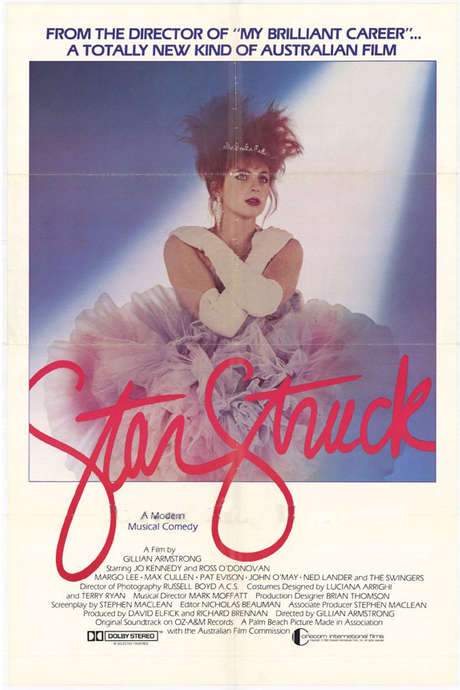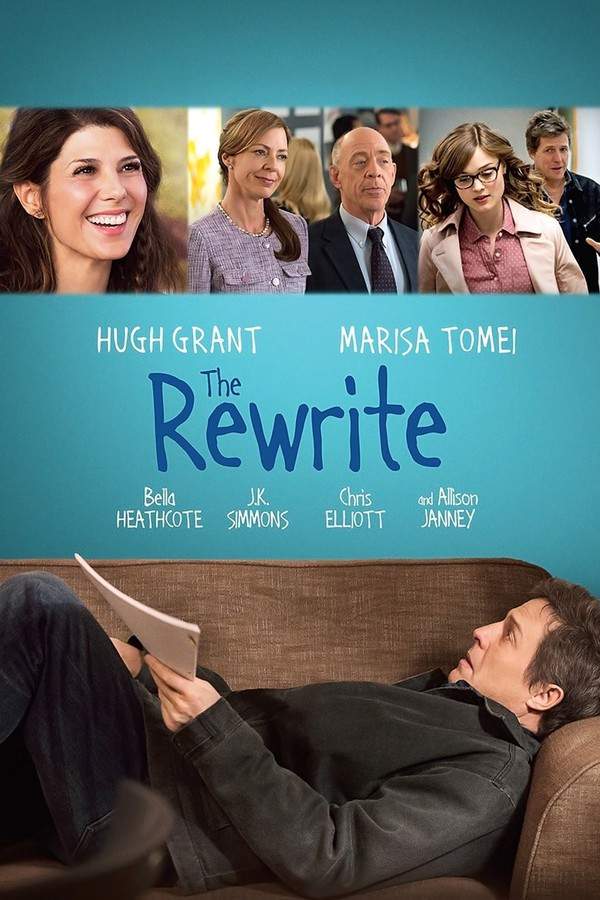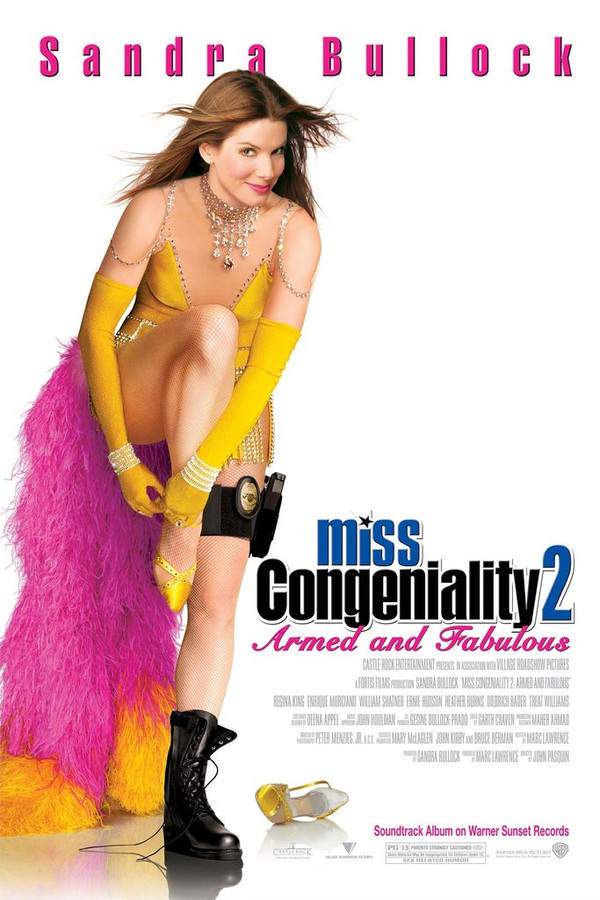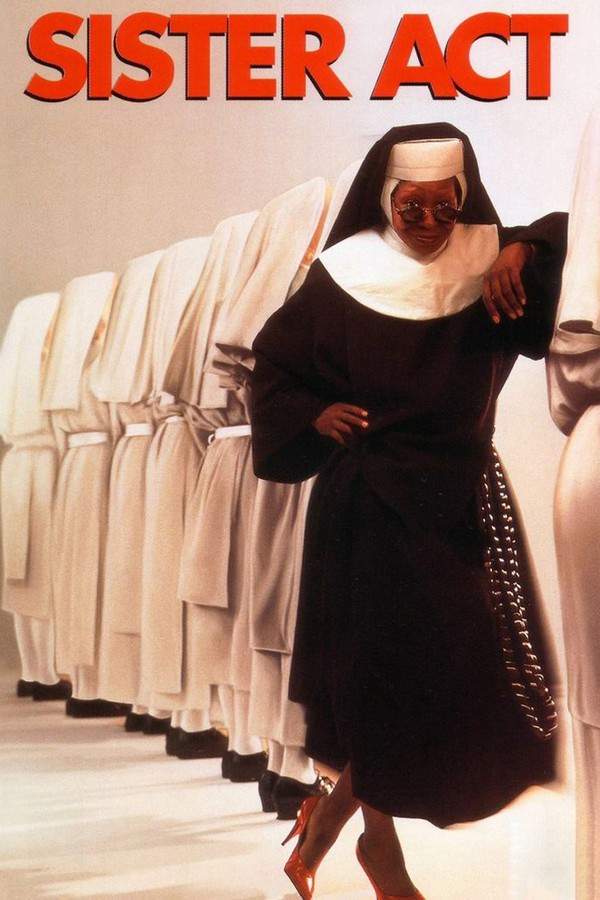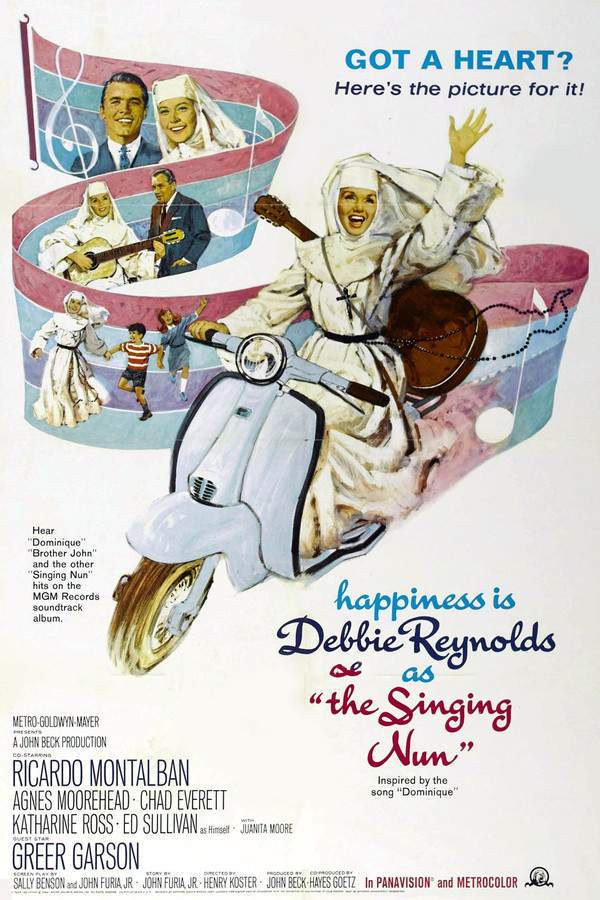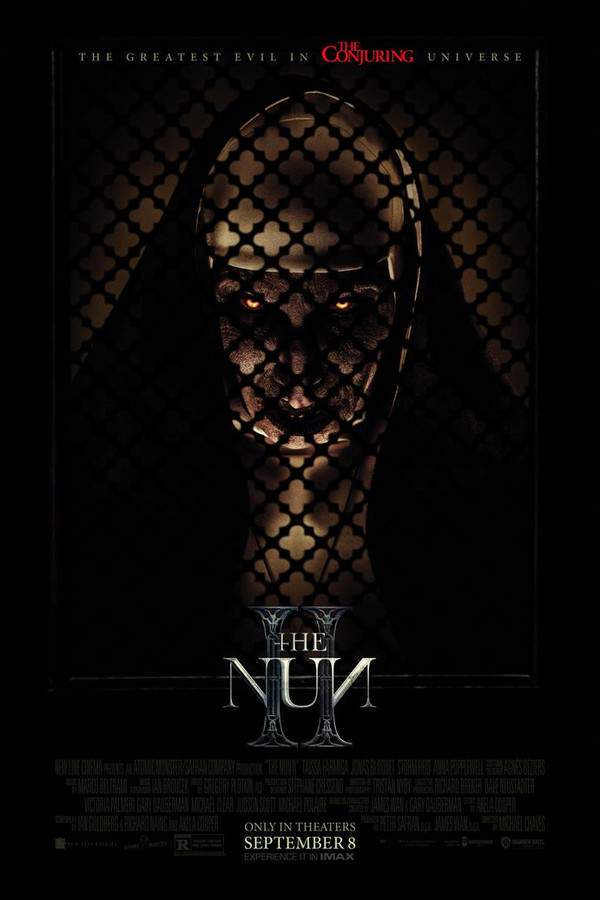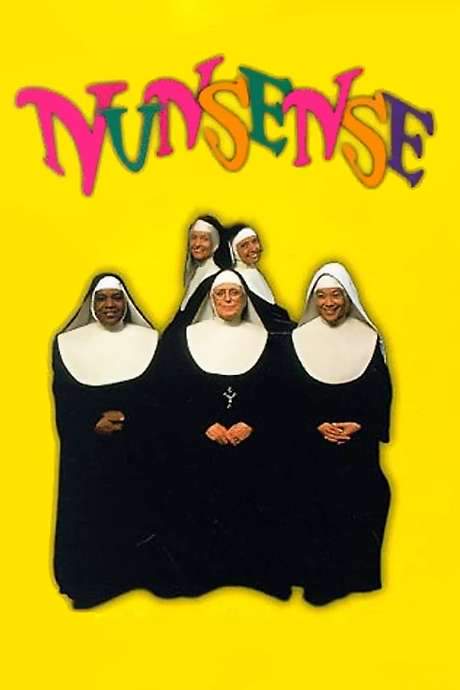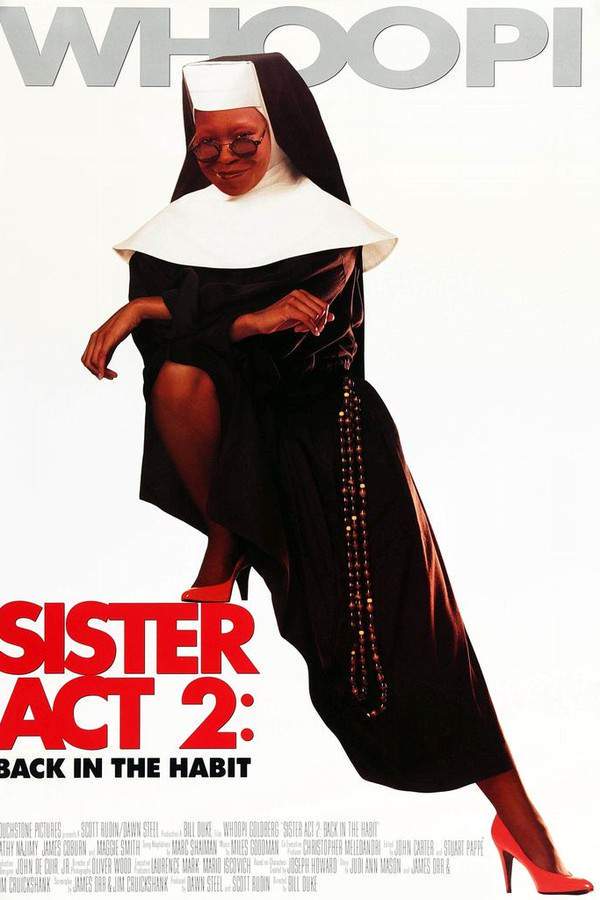
Sister Act 2: Back in the Habit
Year: 1993
Runtime: 107 min
Language: English
Deloris Van Cartier, once again posing as Sister Mary Clarence, returns to her former life to help a failing school facing closure. This time, she’s tasked with inspiring a group of disaffected teenagers and transforming them into a choir. With the assistance of her former friends from the first film, she confronts a strict and unsympathetic administrator in an effort to save the school and bring music and hope back into the lives of the students.
Warning: spoilers below!
Haven’t seen Sister Act 2: Back in the Habit yet? This summary contains major spoilers. Bookmark the page, watch the movie, and come back for the full breakdown. If you're ready, scroll on and relive the story!
Sister Act 2: Back in the Habit (1993) – Full Plot Summary & Ending Explained
Read the complete plot breakdown of Sister Act 2: Back in the Habit (1993), including all key story events, major twists, and the ending explained in detail. Discover what really happened—and what it all means.
As Deloris Van Cartier, a former convent fugitive now turned Las Vegas headliner, reunites with her beloved sisterly companions—Sisters May Robert, Mary Patrick, and Mary Lazarus—at St. Francis High School in San Francisco, she finds herself enveloped in a whirlpool of nostalgia. The Sisters reveal that they have tirelessly dedicated themselves to the very same high school Deloris once called home. With sparkling eyes full of enthusiasm, they persuade her to return and leverage her talents to give the school a much-needed boost. Initially reluctant to step back into the role of Sister Mary Clarence, Deloris ultimately agrees to help revive the institution.
Upon her arrival, the Reverend Mother makes a gesture of goodwill by inviting Deloris to embrace her previous identity and take on the music teacher position at the underperforming school. As she confronts her doubts, Deloris finds herself swayed by the Sisters’ heartfelt encouragement. However, her initiation into teaching is met with a blend of skepticism and disinterest from students, who are more concerned with sailing through her class than actually engaging with the material.
Unwilling to permit her students to simply coast, Deloris exerts herself with the authority of a drill sergeant, demanding responsibility and discipline. One particularly defiant student, Rita Watson, initially threatens to abandon the struggle, but her classmates remain steadfast, motivated by a newfound desire for academic achievement. As Deloris delves into their hidden talents, she realizes they are not just ordinary students; they possess remarkable singing abilities.
Encouraged by Mary Robert, Rita’s exceptional vocal skills surface, prompting Deloris to guide her back to the spotlight. Using the right motivation—like excerpts from Letters to a Young Poet to inspire her—Rita returns, and the group begins to develop a strong bond. They collaborate to transform the neglected music room from a forgotten space into a vibrant center for creativity.
Their dedication pays off when they deliver a powerful performance of “Oh Happy Day” at an assembly, earning enthusiastic applause from their peers. During this process, Mary Robert, Mary Patrick, and Mary Lazarus uncover ancient trophies that hint at the school’s illustrious musical past. This discovery sparks a shared hope that rekindling this dormant talent might be crucial for the school’s salvation—an idea that even the initially doubtful Father Maurice begins to embrace.
Determined to raise necessary funds and secure parental consent for participation, the Sisters organize a spectacular fundraising event that leaves everyone in awe. Thanks to their combined efforts, they manage to collect the needed funds, setting the stage for a glorious return to competitive choir performances.
When Rita’s mother, Florence, learns of her daughter’s dedication to the choir, she reacts with hostility, urging Rita to abandon her dreams, haunted by her late husband’s failed singing career. Caught in a tug-of-war between familial loyalty and personal ambition, Rita hesitantly complies, but on the eve of the significant competition, she bypasses her mother’s wishes by forging her signature, eager to secure her opportunity.
Simultaneously, Mr. Crisp, who has uncovered Deloris’ secret, schemes to sabotage the choir’s efforts, enlisting the Brothers to disrupt their preparations. As competition day unfolds, anxiety washes over the students, who feel dwarfed by larger, more established choirs. Their confidence wavers, prompting questions about their commitment. Yet, Deloris delivers a galvanizing speech, reminding them of the importance of not letting fear dominate their lives; this rekindles their determination to push ahead.
The budding conflict reaches its peak as the Brothers arrive, leading to a tense confrontation between Mr. Crisp and Brother Maurice. Ultimately, Brother Maurice allows the choir to perform after witnessing their passion. Just when nerves threaten to overwhelm the students, Florence’s presence in the audience adds further pressure to Rita’s performance.
However, despite her brief uncertainties, Rita delivers a stunning solo that leads into an exhilarating rendition of “Joyful, Joyful,” blending urban contemporary gospel with hip-hop flair. Their victory resonates powerfully, securing the archdiocese’s decision to preserve the school’s future.
As Mr. Crisp finally confronts the choir, the Reverend Mother skillfully counters his attempts to expose Deloris’ true identity by portraying it as Deloris’ own initiative. Agreeing to keep Mr. Crisp on despite his frustration, the archdiocesan officials ensure the choir’s continued success.
In the aftermath of their victory, the students eagerly press Deloris for the truth behind the whispers about her having once been a Las Vegas showgirl. With a trademark frankness, she clears the air, distinguishing herself as a celebrated performer rather than just a showgirl.
The film culminates in a high-energy musical number, where the cast gathers to perform “Ain’t No Mountain High Enough,” symbolizing their hard-earned triumph and the power of perseverance.
Last Updated: November 19, 2024 at 17:56
Explore Movie Threads
Discover curated groups of movies connected by mood, themes, and story style. Browse collections built around emotion, atmosphere, and narrative focus to easily find films that match what you feel like watching right now.
Uplifting Musical Underdog Stories like Sister Act 2: Back in the Habit
Stories where music and community help a group of unlikely heroes overcome the odds.If you loved the joyful energy of Sister Act 2, you'll enjoy these movies where music saves the day. Discover films featuring inspiring mentors, talented underdogs, and triumphant performances that deliver a feel-good, hopeful experience similar to Deloris and her choir.
Narrative Summary
These stories typically follow a classic underdog arc: an inspiring figure (often a teacher or mentor) enters a struggling community and uses music to unite and motivate a group of disaffected individuals. They face a clear antagonist or obstacle (like a closing school or skeptical authority), culminating in a high-stakes performance or competition that proves their worth and brings everyone together.
Why These Movies?
Movies are grouped here for their shared core of using music as a catalyst for positive change, their optimistic and joyful tone, and their focus on collective triumph over adversity. They create a consistent vibe of inspiration and communal celebration.
Movies about Rekindled Passion and Second Chances like Sister Act 2: Back in the Habit
Characters finding new purpose by helping others discover their own potential.Fans of Sister Act 2: Back in the Habit will appreciate these stories of characters getting a second chance to make a difference. Explore films about inspiring mentors who find new meaning in life by helping others unlock their talents, leading to heartfelt and triumphant outcomes.
Narrative Summary
The narrative pattern involves a protagonist returning to a familiar place or situation, often with some reluctance. They are tasked with mentoring a group facing challenges, and in the process of guiding them, the protagonist reconnects with their own passions and talents. The journey resolves both the students' struggles and the mentor's personal sense of purpose, creating a dual arc of discovery and achievement.
Why These Movies?
These films are connected by the central theme of redemption and rediscovery through mentorship. They share a hopeful tone, a steady pacing that builds towards a climax of personal and collective success, and an emotional core centered on the joy of helping others succeed.
Unlock the Full Story of Sister Act 2: Back in the Habit
Don't stop at just watching — explore Sister Act 2: Back in the Habit in full detail. From the complete plot summary and scene-by-scene timeline to character breakdowns, thematic analysis, and a deep dive into the ending — every page helps you truly understand what Sister Act 2: Back in the Habit is all about. Plus, discover what's next after the movie.
Sister Act 2: Back in the Habit Timeline
Track the full timeline of Sister Act 2: Back in the Habit with every major event arranged chronologically. Perfect for decoding non-linear storytelling, flashbacks, or parallel narratives with a clear scene-by-scene breakdown.

Characters, Settings & Themes in Sister Act 2: Back in the Habit
Discover the characters, locations, and core themes that shape Sister Act 2: Back in the Habit. Get insights into symbolic elements, setting significance, and deeper narrative meaning — ideal for thematic analysis and movie breakdowns.

Sister Act 2: Back in the Habit Spoiler-Free Summary
Get a quick, spoiler-free overview of Sister Act 2: Back in the Habit that covers the main plot points and key details without revealing any major twists or spoilers. Perfect for those who want to know what to expect before diving in.

More About Sister Act 2: Back in the Habit
Visit What's After the Movie to explore more about Sister Act 2: Back in the Habit: box office results, cast and crew info, production details, post-credit scenes, and external links — all in one place for movie fans and researchers.

Similar Movies to Sister Act 2: Back in the Habit
Discover movies like Sister Act 2: Back in the Habit that share similar genres, themes, and storytelling elements. Whether you’re drawn to the atmosphere, character arcs, or plot structure, these curated recommendations will help you explore more films you’ll love.
Explore More About Movie Sister Act 2: Back in the Habit
Sister Act 2: Back in the Habit (1993) Scene-by-Scene Movie Timeline
Sister Act 2: Back in the Habit (1993) Movie Characters, Themes & Settings
Sister Act 2: Back in the Habit (1993) Spoiler-Free Summary & Key Flow
Movies Like Sister Act 2: Back in the Habit – Similar Titles You’ll Enjoy
Pitch Perfect 2 (2015) Full Movie Breakdown
Grease 2 (1982) Story Summary & Characters
The Boondock Saints II: All Saints Day (2009) Movie Recap & Themes
The Sisterhood of the Traveling Pants 2 (2008) Ending Explained & Film Insights
Miss Congeniality 2: Armed & Fabulous (2005) Complete Plot Breakdown
Sister Act (1992) Spoiler-Packed Plot Recap
Big Momma's House 2 (2006) Movie Recap & Themes
Stage Mother (2020) Full Movie Breakdown
The Singing Nun (1966) Story Summary & Characters
The Nun II (2023) Film Overview & Timeline
Sister Mary Explains It All (2001) Full Movie Breakdown
Sister, Sister (1982) Complete Plot Breakdown
Where Angels Go, Trouble Follows (1968) Full Movie Breakdown
Nunsense (1993) Story Summary & Characters
Desperadas 2 (2008) Story Summary & Characters












